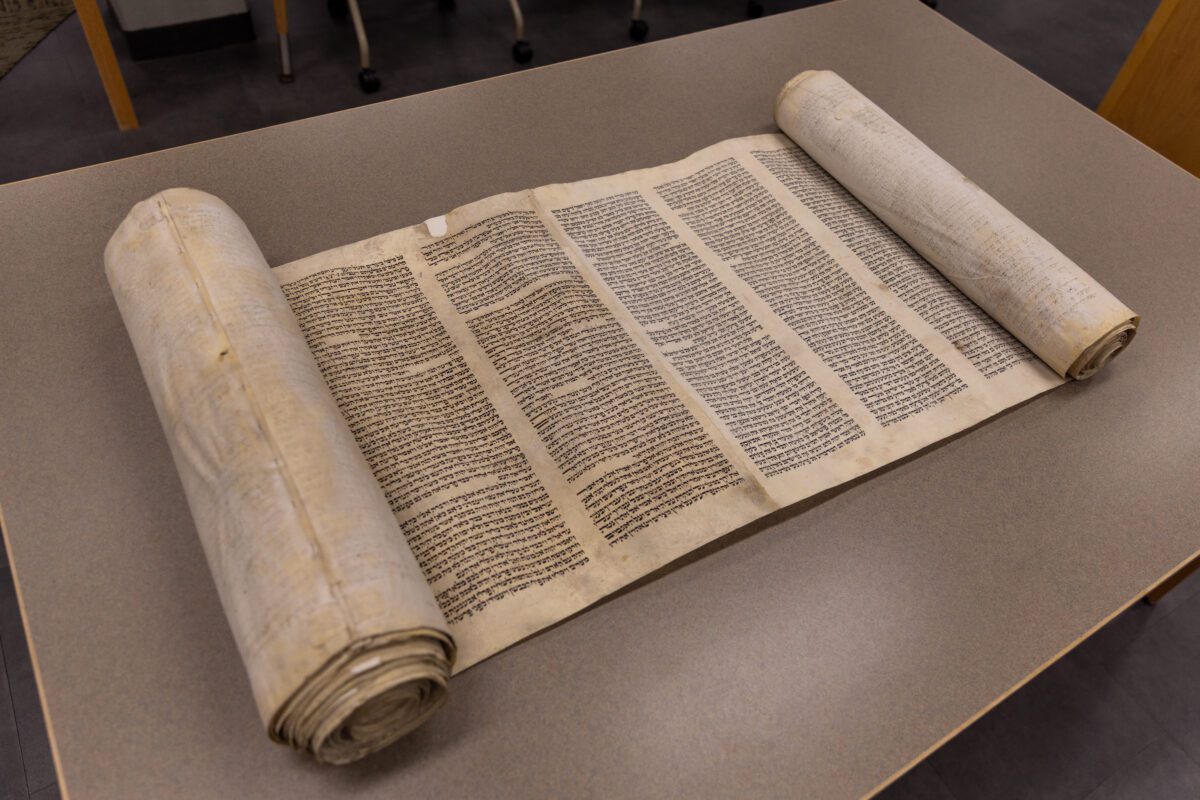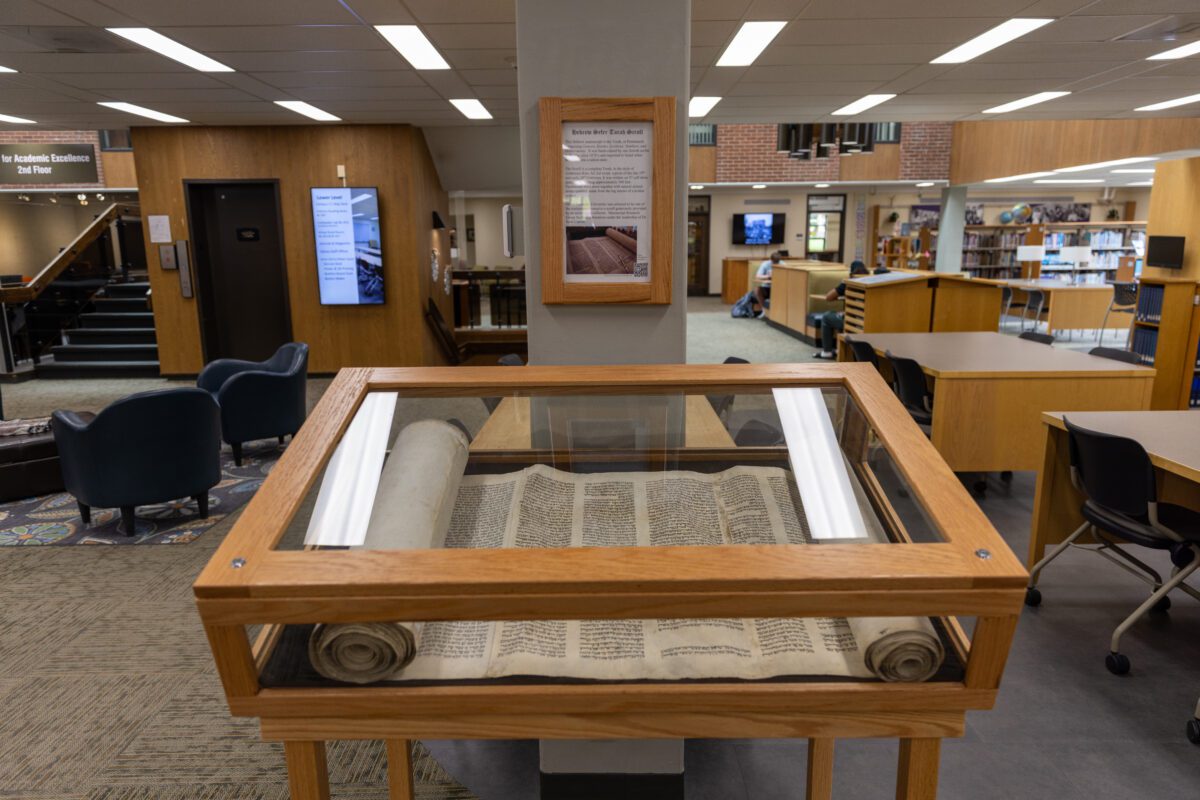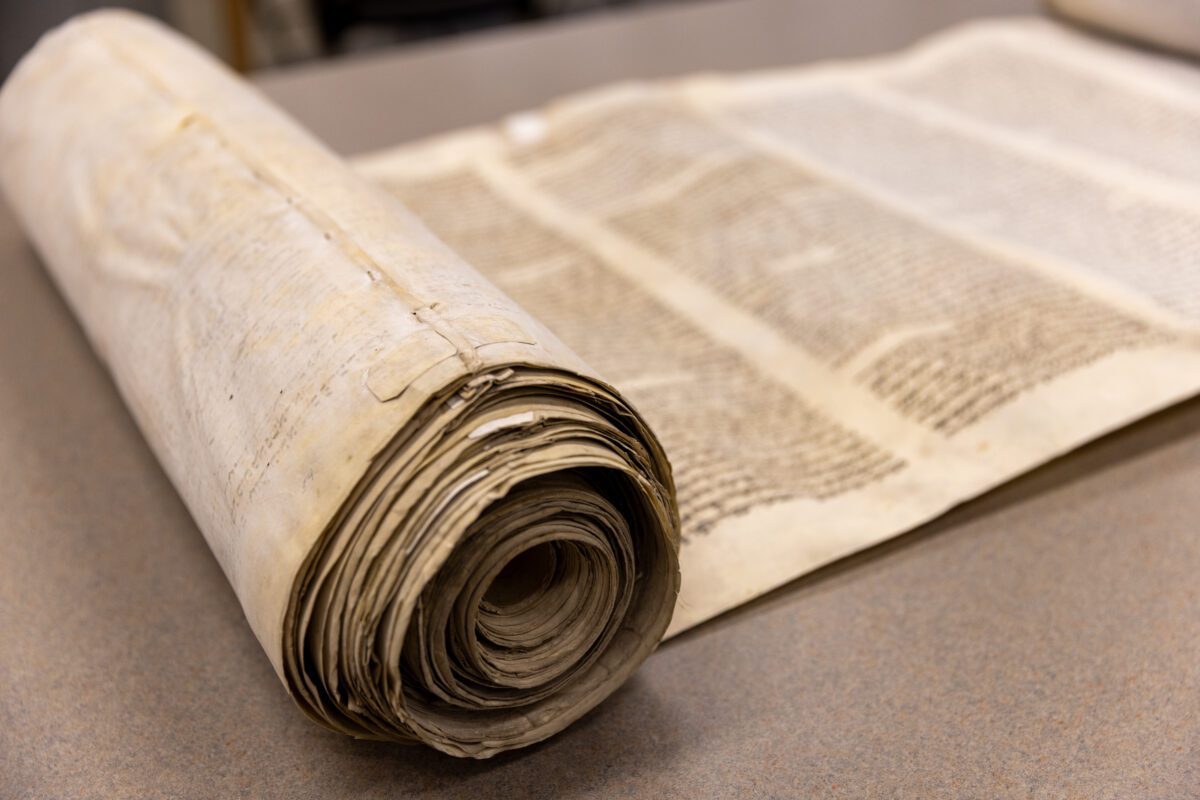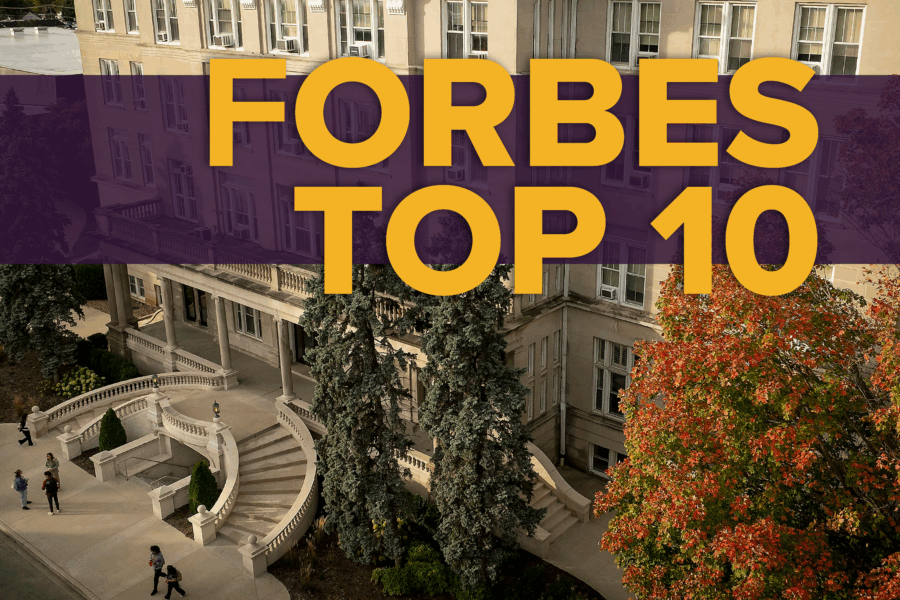
The Torah is a sacred document for Judaism, but its text is also foundational for the Christian and Catholic Bibles as it covers the five books of Moses which comprise the Pentateuch. In fall 2022, Olivet Nazarene University received the generous gift of a Hebrew Sefer Torah scroll, expanding important research access for students, faculty and staff of the University.
This hand-written, 104-foot long text is comprised of 57 genuine calf skin panels that are stitched together with traditional string called giddin. The scroll, currently housed and maintained by the University Archives at Olivet, has no missing sections and was completed by a singular scribe, circa the 1870s. The text follows the Ashkenazi Ktav Ari Z”al script typical of the late nineteenth century. Although it is considered to be in good condition, the scroll does show some areas of light wear, including cracks in the panels and some flaking of ink.

This antique document holds value as an educational tool for students at Olivet — even for those who cannot read ancient Hebrew.
“Students benefit from their interactions with the scroll, which is intended to be physically interacted with by Hebrew classes and their professor,” explains Dr. Charles Perabeau, dean of the School of Theology and Christian Ministry. “Students are able to feel calf-skin parchment as a writing surface, observe handwriting glosses and edits, and appreciate the tedious and delicate copying of the Torah by scribes.”
Dr. Kevin Mellish, professor in the School of Theology and Christian Ministry brings some of his students to Benner Library to interact with the Torah text each semester. When he and his students use the scroll, they remove it from its case and unroll it to observe different passages. When not in use, the Torah is publicly on view in a custom display case, made by Troy Lovell, lab manager for the Department of Engineering at Olivet.

In a digital age, when the Internet provides convenient access to documents and artifacts around the world, Matt Marcukaitis, head of Olivet’s University Archives feels that there are still benefits to acquiring physical items for holistic academic research.
“Physical objects help people connect with history, learn better and notice details that digital copies can’t show,” Matt says. “Touching and seeing real things makes learning more exciting and real. While digital archives allow everyone a chance to experience the artifact, they cannot replace the real thing.”
This scroll uniquely allows students, faculty, staff and the public to engage with history and their own faith in an up-close and personal way.

“A limited number of CCCU institutions have been gifted Torah scrolls from the same [anonymous] donor,” says Dr. Perabeau. “The scrolls were randomly assigned to the few institutions receiving them. We are honored to have been selected as a recipient and are quite pleased with the scroll we have received!”
For more information about Benner Library and the host of historically significant artifacts maintained by the University Archives, visit Library.Olivet.edu.





